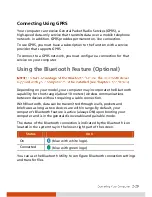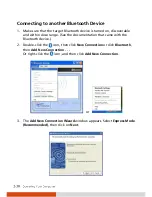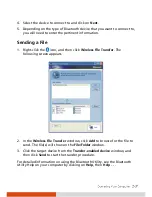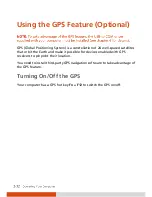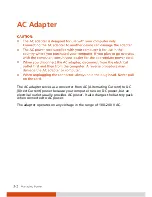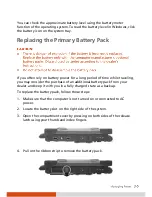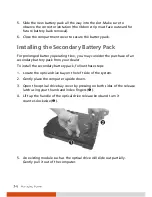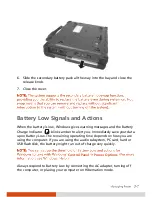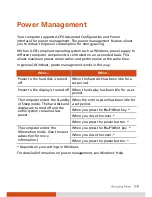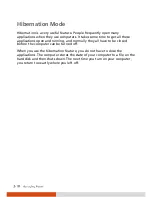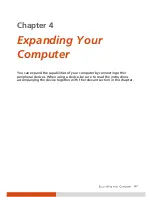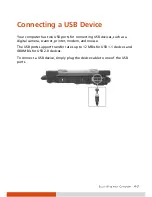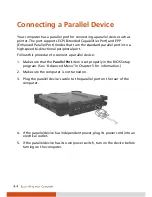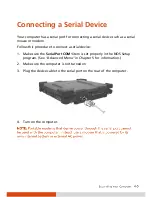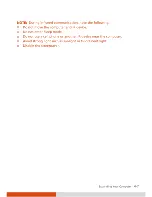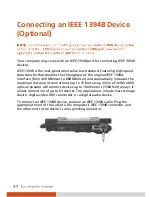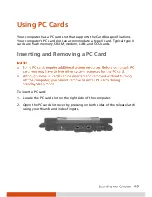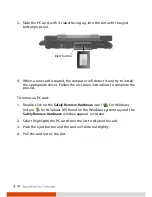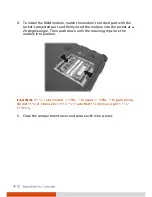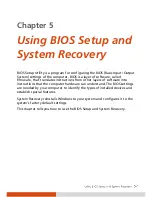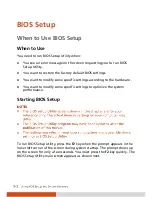
Power-Saving Tips
In addition to your computer’s automatic power management, you can do
your part to maximize the battery’s operating time by following these
suggestions.
Do not disable Power Management. Choose a Windows power plan that
saves power. A power plan is a collection of hardware and system
settings that control how your computer manages power.
Decrease the LCD brightness to the lowest comfortable level.
Shorten the length of time before Windows turn off the display.
Disable the parallel and serial ports if no devices are connected to these
ports. (See “Advanced Menu” in Chapter 5.)
Many USB devices use power just by being connected. If you use a USB
mouse, you can save power by disconnecting the mouse and using the
touchpad. If you use a USB flash drive, unplug it when you are not using
it.
If you work with an application that uses a PC card, exit the application
when you finish using it.
If you have a PC card installed, remove it when not in use. Some PC cards
drain power even while they are inactive.
If you work with an application that features wireless connectivity
(WLAN/modem/GPS/Bluetooth), exit the application when you finish
using it (see Chapter 2).
Turn off the computer when you are not using it.

